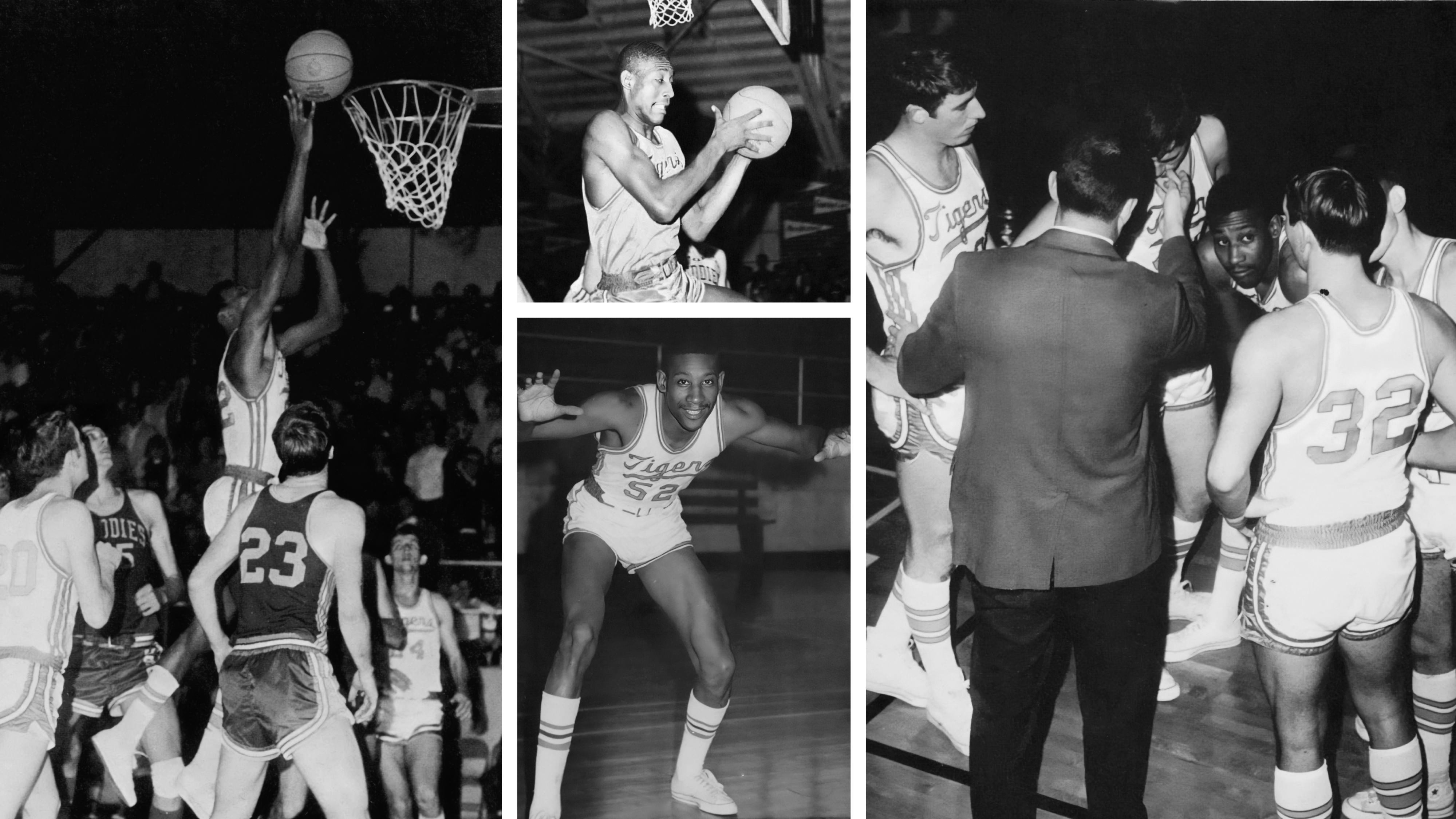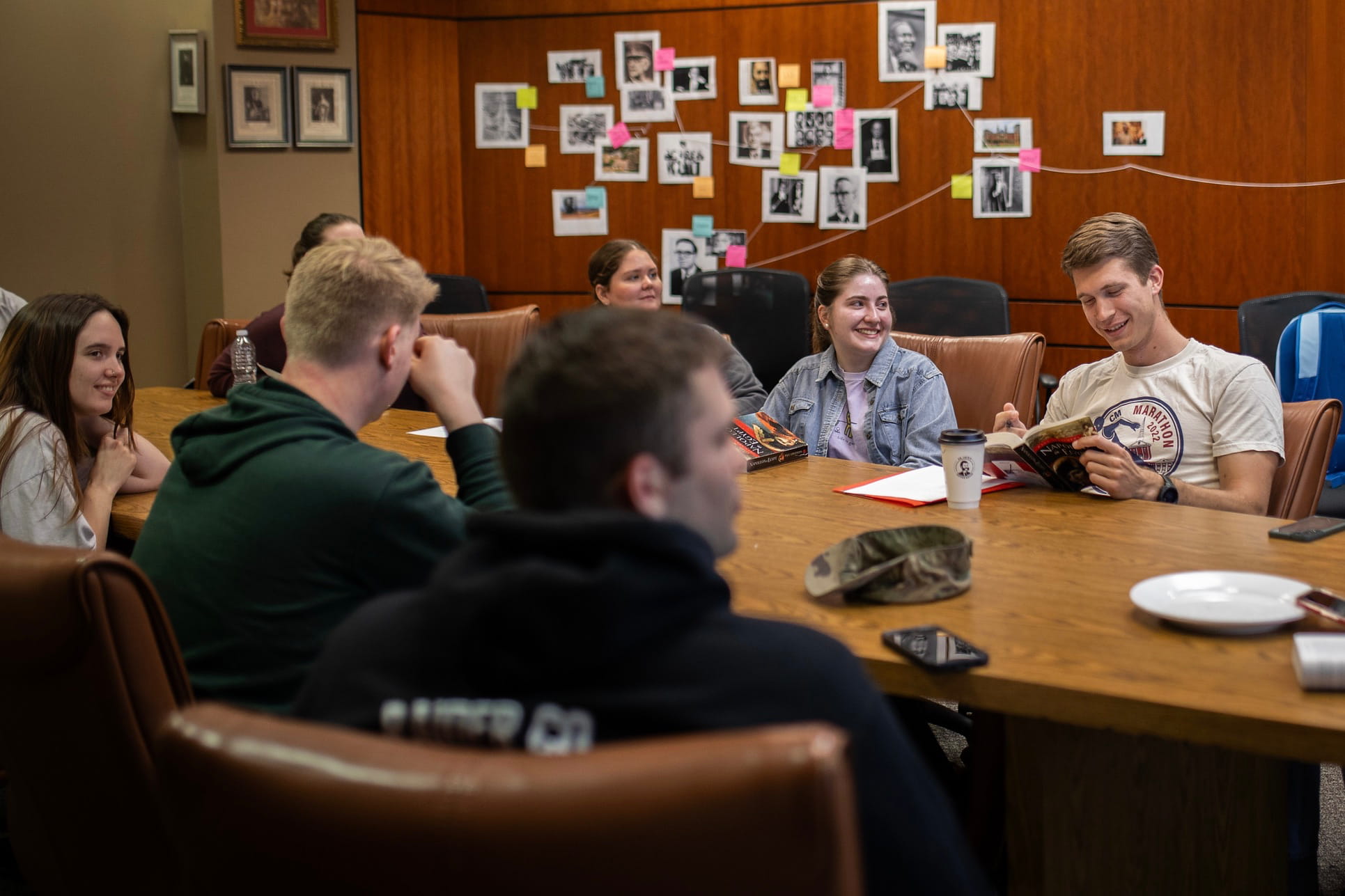Ouachita hosts inaugural Conference on Issues in Christian Counseling
March 02, 2011 - Whitney Crews
Pornography. The issue is becoming a more prevalent and worrisome topic for many ministers
and churches today. As it is recognized as a dangerous issue Christians are facing,
counseling professionals and ministers are coming together to address the problem
and its solutions.
Ouachita Baptist University hosted the first annual Conference on Issues in Christian
Counseling on Feb. 25. The conference, “Addictions: Problems and Solutions,” provided
ministers, mental health professionals and students the opportunity to come together
and learn about the causes and effects associated with Internet pornography addiction
and how to appropriately minister to those affected by it.
The conference, sponsored by Ouachita Baptist University, Henderson State University
and New Orleans Baptist Theological Seminary is the first of its kind in the Arkadelphia
area.
“It has been a dream of many years to offer Christian-based professional training
in the area,” said Dr. Bill Viser, associate professor of Christian ministries at
Ouachita and a licensed professional counselor. “Prior to this, if you wanted training,
it was secular-based and you had to go to Little Rock or Texarkana, so we are offering
an annual conference here at Ouachita for the pastors, mental health professionals
and students.”
The conference offered participants the opportunity to attend sessions led by faculty
from each of the sponsoring schools about issues ministers and counselors face when
helping an individual overcome an addiction to pornography.
Sessions included topics such as pornography’s effects on marriage, its impact on
sexual behavior and intimacy in relationships, biblical approaches to counseling and
addictions, and ministering to women who have been victimized by their husband’s use
of pornography.
“This has become such an explosive issue in our society,” said Dr. Kathy Steele, a
licensed counselor and associate professor of psychology and counseling at New Orleans
Baptist Theological Seminary, in her session pertaining to victimized women. “God
has given us many tools and opportunities to deal with the issues that we need to
deal with, but we have to take personal responsibility; we have to take action.”
“A great majority of therapists say they are not trained to handle these kinds of
issues,” Viser said. “They desperately need the training and if the therapists themselves
and mental health professionals are under trained, you can only imagine that the pastors
are really struggling with this. I think they welcome any opportunity they can to
further their education.”
The eight and a half hour workshop pumped participants with knowledge and resources,
sometimes hard to take.
In the first chapter of his book, “Undressed to Kill: The Destructive Power of Internet
Pornography and What You Can Do about It” that he provided participants, Viser states,
“Every second 28,258 Internet users are viewing pornography,” “One in three visitors
to adult websites are women” and “Pediatrics Journal found that 42 percent of Internet users ages 10 to 17 said they had seen pornography
online during the past year. Sixty-six of those stated they had not sought out the
images.”
In his session, Viser addressed misconceptions about pornography including its allure
for both males and females, its history and ways the pornography industry captures
the attention of children as young as age 5 or 6 through compromised websites and
the ill-attention of parents. The addictive nature of pornography was emphasized in
most sessions, explaining how, when viewed, pornography activates the same area of
the brain as crack cocaine.
“I think, as religious leaders, we can help demystify the things and addictions that
we’re talking about here,” said Dr. Larry Henderson, a licensed professional counselor,
psychotherapist for Arkansas Counseling and chaplain for Central Baptist College in
Conway. “I think we need to let people know it is okay to be honest with ourselves,
and to say I need help, and praising the fact that they are looking for it without
being toxic in our attitudes toward any specific thing. We should be, as Christians,
surrounding those people, lifting them up and saying we’re not here to judge, we’re
not here to call names; we’re here to walk along with you and three or four people
walking together are a lot stronger than one.”
The 90 ministers, students and counselors in attendance were encouraged to come together
and work in cooperation to bring the issue of pornography in churches to light and
give hope to those struggling with the issue a way to overcome and have guidance toward
a future apart from addiction.
“A lot of times it becomes the elephant in the room,” Viser noted. “Everybody knows
it’s there but nobody wants to talk about it.
“Let’s be a little more compassionate. Let’s be a little more open-minded. Let’s be
a little more willing to move beyond our preconceived ideas that this is something
that you don’t talk about,” he urged. “Let’s quit letting people suffer in shame and
in silence. Let’s extend an open hand, give a listening ear, have a compassionate
heart. Let’s really be serious about what Christ meant in ministering to the unloved
and outcast in society. Let’s reach out to these people with the heart of Christ and
let’s touch their lives and lend them a helping hand.”
By Whitney Crews
You Also Might Like
Ouachita reports Spring '26 enrollment, led by 50% increase in graduate students
February 11, 2026Recent
Ouachita reports Spring '26 enrollment, led by 50% increase in graduate students
February 11, 2026



